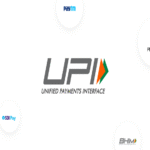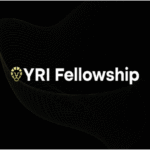Personal banking for High-Net-Worth Individuals (HNIs) offers a unique financial avenue that goes beyond standard banking services. It is a bespoke approach to managing and growing wealth, designed to enhance financial well-being and wealth management. Let us explore personal banking and its key components, and find the strategies for maintaining good financial health, and the reasons why it matters.

What is personal banking and how does it helpyourfinancial well-being?
Personal banking is tailored to meet the unique needs and financial aspirations of varied customers. For HNIs, it provides a more personalised approach compared to traditional banking, where clients are assigned dedicated relationship managers and gain access to a wide range of exclusive services. The primary objective is to help you manage your wealth efficiently, navigate complex financial landscapes, and achieve your financial goals.
The essence of personal banking lies in its ability to maximise returns and provide banking services conveniently. Relationship managers in personal banking are well-versed in various investment strategies, financial instruments, and tax planning. Thus, they offer expert guidance to optimise yourportfolio.
Why is financial well-being important?
Financial well-being goes beyond simply accumulating wealth; it encompasses achieving financial security, peace of mind, and the ability to enjoy comfort and convenience. For HNIs, it is essential to preserve and grow their wealth over time, while also protecting it from market fluctuations and unforeseen financial crises.
HNIs often have complex financial needs and situations that require expert management. Whether it’s asset allocation, estate planning, or wealth transfer, personal banking professionals are equipped to provide customised solutions that address the individual needs of clients. The result is a greater sense of financial security and the confidence to pursue financial objectives without undue stress.
Components of personal banking
Personal banking consists of numerous components that contribute to youroverall financial well-being. These components include:
- Private banking services: Private banking serves beyond wealth management to include exclusive services such as concierge banking, access to premium credit products, and customised financial solutions.
- Wealth management:This is the core function of personal banking. Relationship managers work closely with clients to create bespoke investment portfolios that align with their financial goals and risk tolerance. This includes managing investments in stocks, bonds, real estate, and other assets.
- Tax planning:Personal banking professionals offer comprehensive tax planning solutions to maximise returns while ensuring compliance with tax regulations. This includes strategies for reducing tax liabilities and preserving wealth.
- Estate planning:Personal banking encompasses estate planning to ensure the seamless transfer of assets to heirs. This includes wills, trusts, and other instruments that safeguard wealth for future generations.
- Risk management:HNIs face unique risks, and personal banking strategies aim to mitigate these risks through tailored insurance solutions, diversification, and asset protection.
Smart personal banking strategies for good financial health
To achieve and maintain good financial health, you can adopt the following personal banking strategies as an HNI:
- Goal setting:Define clear financial objectives, both short-term and long-term, and work closely with your relationship manager to align your investments with these goals.
- Diversification:Spread investments across various asset classes to reduce risk and enhance returns. Your relationship manager will help you create a well-balanced portfolio.
- Regular review:Consistently review your financial portfolio with your relationship manager to adapt to changing market conditions and personal circumstances.
- Tax efficiency:Maximise post-tax returns through efficient tax-planning strategies and take advantage of tax incentives.
- Risk management:Stay prepared for unexpected events by having a robust risk management plan, including insurance coverage and asset protection strategies.
To sum up
In today’s dynamics where financial landscapes are constantly evolving, personal banking offers a unique opportunity for HNIs to navigate these complexities while safeguarding and growing their wealth. By working closely with experienced relationship managers and implementing sound personal banking strategies, HNIs can experience the advantages of this tailored approach to banking, ensuring their financial well-being is secure and optimised.












Leave a Reply
You must be logged in to post a comment.